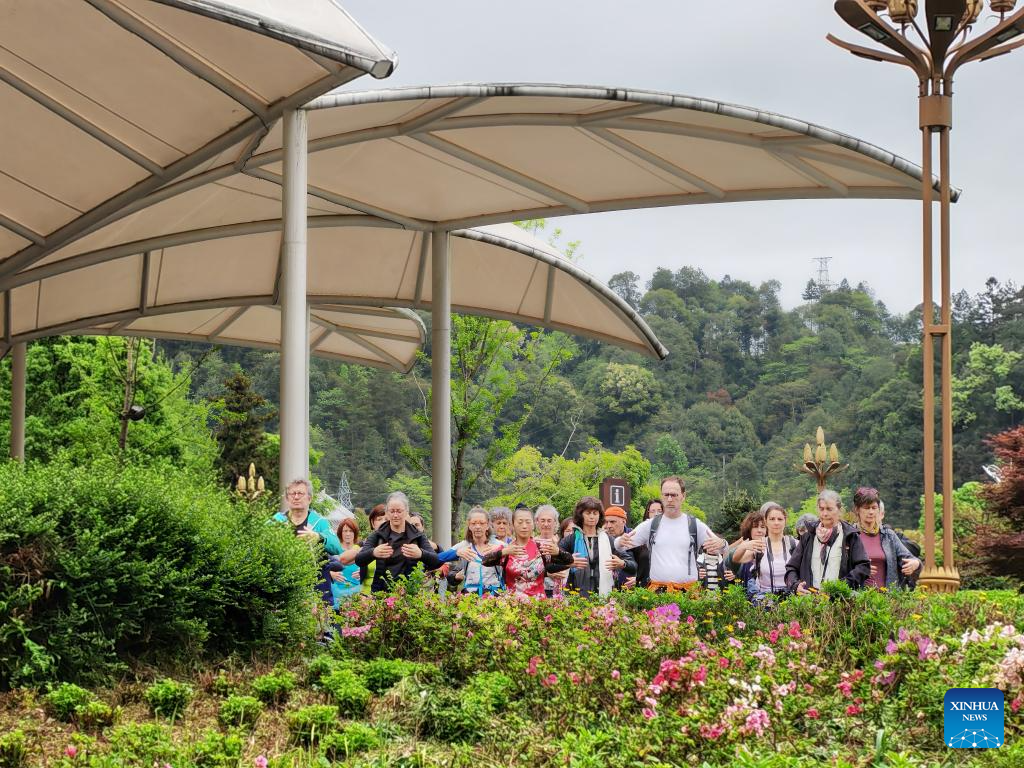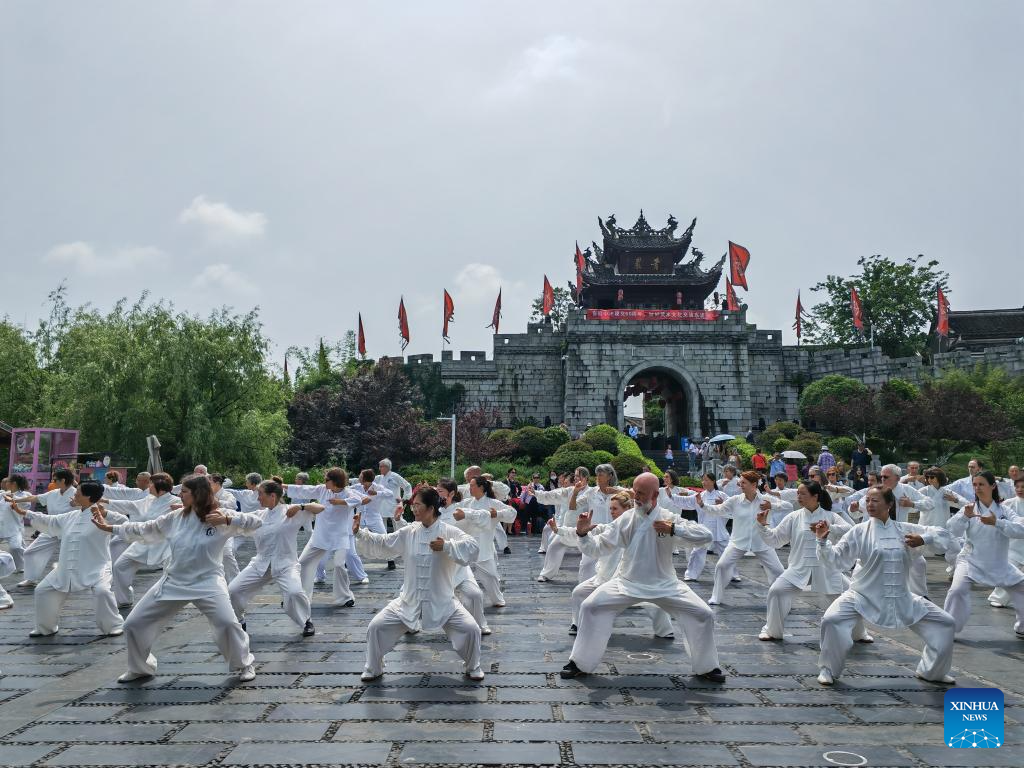
French martial arts enthusiasts practice traditional Chinese Qigong breathing exercises at the Mount Fanjingshan in Tongren City, southwest China's Guizhou Province, April 13, 2024. (Xinhua/Wu Si)
GUIYANG, April 23 (Xinhua) -- Before returning to France, Hanaé Accot, 27, sang a love song during a roadside concert held in Guiyang, the capital city of southwest China's Guizhou Province. It was also her way of expressing her gratitude for the hospitality shown to her by the local people in Guiyang.
From April 7 to 19, a team of about 50 French tourists visited Guizhou Province, experiencing local culture and practicing Taichi as well as Qigong along the journey with their master Ke Wen, who founded Les Temps du Corp, an association promoting Chinese culture in France.
Inspired by her mother who has practiced traditional Chinese martial arts for several years and been to China for four times, Accot embarked on her journey to China.
On the evening of April 18, a local band called Jiangzi performed the classic songs of Chinese rock band Beyond during a roadside concert, arousing audience's nostalgia and attracting them to sing together.
Different from regular concerts, roadside concerts, mainly performed by local bands and music enthusiasts, attracted a lot of tourists and residents to watch performances on bustling streets and in tourist attractions.
During the break, when Accot came upon the stage to sing the love song, she won loud applause and cheering from the audience.
"The band was amazing, and the singer was so good and sang like a musician. And It was a good time for me because I tried to give them what they gave to us," said Accot.
"Music is the universal language and has no boundaries," she added. "Even if we didn't speak the same language, we could understand the music, and the emotions attached to the lyrics."
Accot said that despite her interest in Qigong, she does not practice it very well. She plans to learn from her mother and practice it more often when she returns home.
Just like music, Chinese martial arts provide another ties that bind the people of the two countries together.
François Callens, 64, has practiced Taichi for more than 20 years. Callens said that despite a natural inclination for intense exercises, he fell in love with Taichi when he had the first experience with it. He runs a club in the prefecture of Brittany and teaches Taichi to 19 French people twice a week.
Callens emphasized that Taichi focuses on harmony and the principle of living in accord with nature, which taught him how to get along with himself and the world.
In France, he seldom got the opportunity to play Taichi with a crowd of martial arts enthusiasts together. While in China, he joined locals to play Taichi at the city square or in the park. He was invited to take pictures after practices, which was "so empowering and touching" to him.
"I felt pure friendship as well as the enthusiasm of Chinese martial arts fans. Taichi is the bridge for our cultural exchanges," he said.
François-Regis Hannart has visited China on business for more than 10 times since the 1970s and started practicing Qigong a few years ago. He chose to follow his master Ke Wen to the mountainous province of Guizhou this time, since he wanted to improve his understanding of traditional Chinese culture, Qigong in particular.
During the past five decades, Hannart has witnessed and experienced the rapid development of China. "The first time I came here, it seemed that so many things had to be rebuilt. And now all are absolutely fantastic," he said.
This year marks the 60th anniversary of the establishment of diplomatic ties between China and France, and is also the China-France Year of Culture and Tourism. ■

Chinese and French martial arts enthusiasts practice the traditional exercise Baduanjin in the Qingyan ancient town in Guiyang City, southwest China's Guizhou Province, April 19, 2024. (Xinhua/Wu Si)

French tourist Hanaé Accot (1st R) sings a song at a roadside concert in Guiyang City, southwest China's Guizhou Province, April 18, 2024. (Xinhua/Wu Si)



